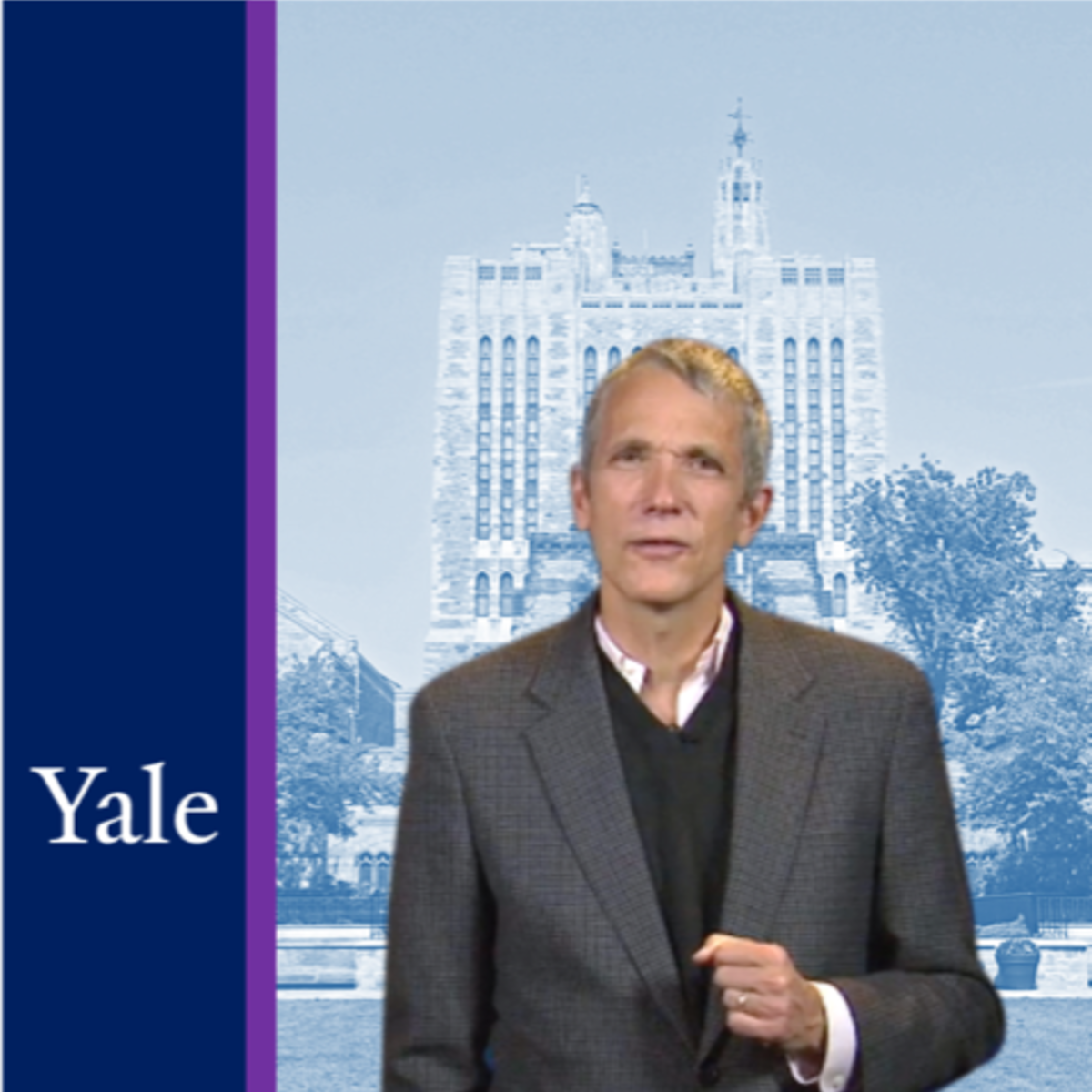Back to Courses









Law Courses - Page 7
Showing results 61-70 of 73

What is Corruption: Anti-Corruption and Compliance
Have you ever paid someone for doing you a favor?
You may be accustomed to tipping wait staff or other service providers, but what if you paid a police officer for NOT issuing a parking ticket? Or if you gave a “gift” to a government official for signing a contract with your company? Tipping might be okay, but paying a bribe is a violation of the law.
Bribery is widespread and exists almost everywhere and in many forms. Compliance programs address this and other forms of corruption.
In this course we’ll discuss what corruption actually is by examining, for example, the difference between a tip and an illegal bribe. We will examine where corruption exists, how it exists, its ramifications, and the genesis of today’s anti-corruption laws. We’ll also focus on practical strategies for creating compliance policies and procedures that address and prevent corruption.
We will learn about the U.S. Foreign Corrupt Practices Act, the UK Bribery Act, and many other anti-corruption laws. Much of the course will focus on building out compliance policies and procedures that address corruption. We will also look at practical methods for preventing corruption in an organization as well as red flags and other mechanisms for identifying corruption early so that it can be adequately addressed.

Speaking and Presenting: Tact
To be an effective speaker you don’t need to overwhelm people with your intellect. You don’t need to dazzle them from start to finish. You simply need to give them the sense that what they are receiving was especially prepared with their interests and needs in mind. This course will help you develop the judgment and dexterity needed to craft a perfectly tailored message.

Constitutional Struggles in the Muslim World
Learn what motivates the restive Muslim youth from Tunis to Tehran, what political positions Islamists from Mali to Chechnya are fighting for, where the seeming obsession with Islamic law comes from, where the secularists have vanished to, and whether it makes sense to speak of an Islamic state.
Since 2009 there has been a renewed wave of popular unrest sweeping throughout much of the Muslim world. Secular, but generally repressive and inefficient autocracies have come under pressure or been swept aside entirely. At the same, the various Islamic Republics have not fared much better, but been convulsed by internal unrest, economic and social decline. Throughout the Muslim lands, existing constitutional arrangements are being challenged, often very violently.
This course is a survey of the constitutional ideas and institutions that have developed since the mid 19th century throughout predominantly Muslim countries, but its focus will lie on the actors that have dominated this discourse and shaped its outcomes. We will look at the large body of classical writings on the Islamic state only in so far as it is necessary to understand the contemporary debate, but concentrate on the legal and political developments of the 20th and 21st centuries.
Three common themes will characterise the course:
We privilege the study of the legal and social reality and seek to highlight where it is at odds with dogmatic stipulations, be they religious or constitutional.
We seek to illustrate the practical tensions posed by limited administrative capabilities and political legitimacy that resulted from the incomplete reception of modern bureaucratic statehood.
We seek to examine how popular dissatisfaction with the practical performance of Muslim governments has fuelled demands for greater accountability under the guise of cultural authenticity.
Ultimately, the course aims to equip participants to better understand Muslim contemporary discourse about the res publica, better contextualise the demands for religious law in public life, and to better ascertain the theoretical and practical feasibility of postulated religious alternatives to the still-dominant secular model of governance.

International Water Law
In recent decades, international law has undergone a series of major developments in order to accommodate the many new facets of freshwater management and protection. The adoption of universal, regional and basin instruments highlights how important it is to study the evolution of international water regulations and to be able to identify the main principles in this field. This course aims to provide the necessary background to understand and examine the regulation applicable to transboundary freshwaters especially to rivers, lakes and aquifers. It presents the principles and legal standards that govern the use, sharing, management and protection of these resources.
The MOOC is made up of 5 modules. As each module addresses a different theme, they can be viewed in any order. However, the modules do follow a certain pedagogical logic and following in order will be especially helpful to those who are new to the subject. Each module is accompanied by an evaluation questionnaire or quiz. A certificate will be awarded to students who obtain an average of at least 80% in the quizzes.
By the end of this course, you will be able to:
1) Describe the issues related to the regulation of transboundary freshwaters;
2) Explain how transboundary freshwater regulations have evolved;
3) Recall and interpret the key principles governing water resource regulation;
4) Understand the role of transboundary freshwater dispute settlement mechanisms in the development of international freshwater law (or to understand the role of international courts and tribunals in the resolution of conflicts)
This MOOC was developed by the Platform for International Freshwater Law that is part of the Geneva Water Hub, assisted by the MOOC Team of the University of Geneva. Alongside the researchers and teachers of the Platform, several international experts have also participated. This MOOC is one of three courses supported by the Water Hub Geneva and the University of Geneva. The other MOOCS are "Water Management and Policy" (www.coursera.org/learn/gestioneau) and "Ecosystem Services: a method for sustainable development "(www.coursera.org/learn/ecosystem-services). The Global Water Program of the Swiss Agency for Development and Cooperation (SDC) has funded this course.
This MOOC was originally created in French. It has English subtitles.

Speaking and Presenting: Conversation Starters
This course will teach you how to build persuasive surprises into your presentations, the kind of surprises that will change how your audience sees a particular situation or proposal and then gets them talking—in a good way. It will also identify several techniques you can use to start (and maintain) your own conversations, whether with a big group, a small group, or even just one-one-one.

American Contract Law I
American Contract Law I (along with its sister course Contracts II) provides a comprehensive overview of contract law in the United States. The course covers most of the key concepts found in a first year law school class. Each lecture is based on one or more common-law cases, integrating legal doctrines with policy discussions. The course also covers key sections from the Uniform Commercial Code (UCC), which governs the sale of goods.
By the end of the course, the learner should be able to understand:
Formation: how a valid and enforceable contract is created, including concepts such as offer, acceptance, consideration, and promissory estoppel.

EU policy and implementation: making Europe work!
People have become more critical of EU policy and often seem to prefer local policy solutions in response to globalisation problems. How do you experience EU policy? Does it help? And if not, how can we change this? In this course, we learn how the European Union prepares and decides on policy, and how policy is transferred to member states and implemented by various authorities, including regional and local governments. We discuss the challenges of the European multi-level governance structure. We also focus on the main causes of policy failure or success. On this journey, we focus on actual policy and present the views of various experts: how easy is it to establish yourself in another EU-country? How do governments make sure that the air you breathe is clean? And who is responsible?
You will be able to do research together in your own local setting. Research on implementation in which you can make comparisons between different countries or areas. If you live outside the EU, this is not a problem. We have developed assignments in such a way that you can do research in your area and compare your findings with others.
This MOOC has been rated as one of the best MOOCs of 2017 and is currently in the Top 50 MOOCs of All Time of Class Central
So, are you curious? Please join: 'EU policy and implementation: making Europe work'. Watch our trailer video at https://www.youtube.com/watch?v=n3nSN9R3VR4

European Citizenship – Development, Scope, and Challenges
All citizens in the EU are granted a European Citizenship on top of their national citizenship. Which rights and opportunities does this supra- and transnational citizenship provide? And what are the challenges and dilemmas of the two-level citizenship – for individuals, for the member states and for the union? This course examines the development, the scope and the challenges of European Citizenship.
The course has a threefold aim: to explore the development, application and current challenges of European citizenship. This aim is examined through three modules. The first module focuses on the development of European Citizenship: What are the substantive rights of citizenship beyond the state, and which institutions have been key to their development? Here, we focus on free movement for persons, cross-border welfare, and political rights – especially the European Citizens' Initiative. The second module focuses on the application of EU citizenship: How is EU citizenship practised? Is EU citizenship limited or extensive when compared to the US federal system, for example? Is it still foremost a right for those who move from member state to member state, but not for those who stay in their member state of origin? Finally, the third module examines the extent to which the rules and rights around European citizenship have been contested and politicized during the last decade. In this part of the course, we also look into the de-Europeanisation of citizenship through Brexit.
The course is funded by Erasmus+ and developed by the 4EU+ University Alliance, consisting of six European Universities: Univerzita Karlova, Universität Heidelberg, Sorbonne Université, Københavns Universitet, Università degli studi di Milano, Uniwersytet Warszawski.

Introduction to International Criminal Law
-- About the Course --
From the Nuremberg trial to the case against Saddam Hussein, from the prosecution of Al-Qaeda terrorists to the trial of Somali pirates – no area of law is as important to world peace and security as international criminal law. Taught by one of the world’s leading experts in the field, this course will educate students about the fundamentals of international criminal law and policy. We will explore the contours of international crimes such as genocide, war crimes, terrorism, and piracy. We will examine unique modes of international criminal liability and specialized defenses. And we will delve into the challenges of obtaining custody of the accused and maintaining control of the courtroom.
-- Course Syllabus --
This course comprises eight units (or "modules"). Each will include an assigned reading, typically an article or book chapter, as well as a simulation designed to bring the readings to life.
I will also offer video lectures on each of the topics, accompanied by slides. In addition, there will be online role-play exercises and debates, enabling the students to share their own insights.
The order of class sessions will be:
(1) History: From Nuremberg to The Hague
(2) International Crimes Part 1: War Crimes, Genocide, Crimes against Humanity, and Torture
(3) International Crimes Part 2: Terrorism and Piracy
(4) Special modes of liability: command responsibility, co-perpetration, and incitement
(5) Special defenses: insanity, obedience to orders, duress, and head of state immunity
(6) Gaining custody of the accused: extradition, luring, abduction, and targeted killing
(7) Pre-Trial Issues: plea bargaining, self-representation, and exclusion of torture evidence
(8) Maintaining control of the courtroom
-- Recommended Background --
You don’t have to be a lawyer and there are no prerequisites for this course. However, the course will be conducted at the level expected of advanced undergraduate students. Therefore, for all participants, reading and writing comfortably in English at the undergraduate college level is desirable.
-- Suggested Readings --
Students should read the assigned online materials for each unit in advance of the class session.
In addition, students are invited to subscribe to “War Crimes Prosecution Watch,” a free bi-weekly e-newsletter that summarizes the latest developments in the field of international criminal law.
-- Course Format --
This course is made up of eight content units. Each unit is based on an online reading assignment, a video lecture of about one hour in length, and one or more role play exercises to stimulate on-line discussion. The course also offers in-video enrichment quizzes (ungraded) for each unit, a ten question multiple choice midterm diagnostics exam (ungraded), and a ten question True/False Final Exam.
-- FAQ--
How will this course be graded?
This course is graded on completion. In order to complete the course each student must: (1) finish each module (or “lesson”); (2) write at least one essay response of 200 words or more for at least one simulation throughout the course; and (3) get a score of 6 out of 10 or better on the Final Exam.
What resources will I need for this course?
For this course, all you need is an Internet connection, and the time to read and discuss the exciting materials available online.
What is the coolest thing about this course?
The topics we will be discussing are ripped from the headlines. The topics are often controversial and thought-provoking, and always exciting.

Human Rights for Open Societies
Human rights are under pressure in many places across the globe. Peaceful protests are violently quashed. Voting is tampered with. And minorities are often excluded from decision-making. All of this threatens the ideal of an open society in which each of us can be free and participate equally. A solid protection of human rights is needed for an open society to exist and to flourish. But it is often an uphill battle to work towards that ideal. Equip yourself and learn more about what human rights are and how they work.
In this course, we will introduce you to one of the world’s most intricate human rights systems: the European Convention on Human Rights. You will see when and how people can turn to the European Court of Human Rights to complain about human rights violations. You will learn how the Court tries to solve many of the difficult human rights dilemmas of today. We will look, amongst other things, at the freedom of expression and demonstration, the right to vote, and the prohibition of discrimination. And we will address the rights of migrants, refugees, and other vulnerable groups. And, of course, we will see whether it is possible to restrict rights and if so under what conditions. You will even encounter watchdogs and ice cream in this course. We invite you to follow us on a journey of discovery into the European Convention!
Popular Internships and Jobs by Categories
Find Jobs & Internships
Browse
© 2024 BoostGrad | All rights reserved